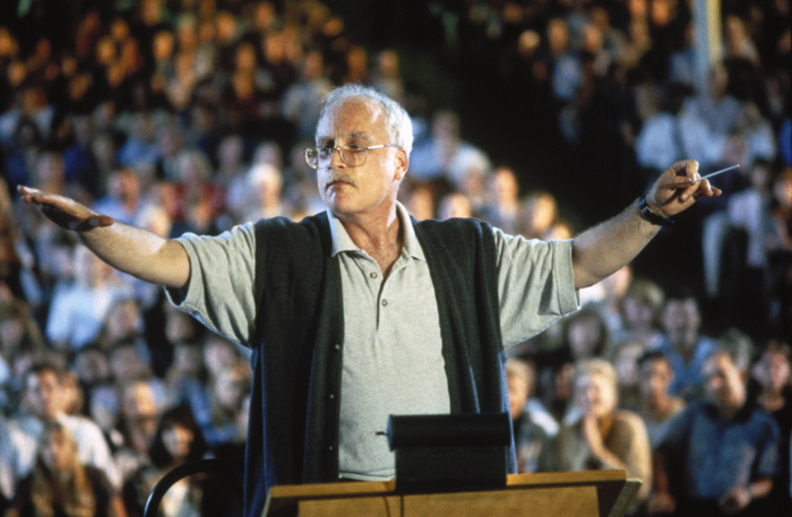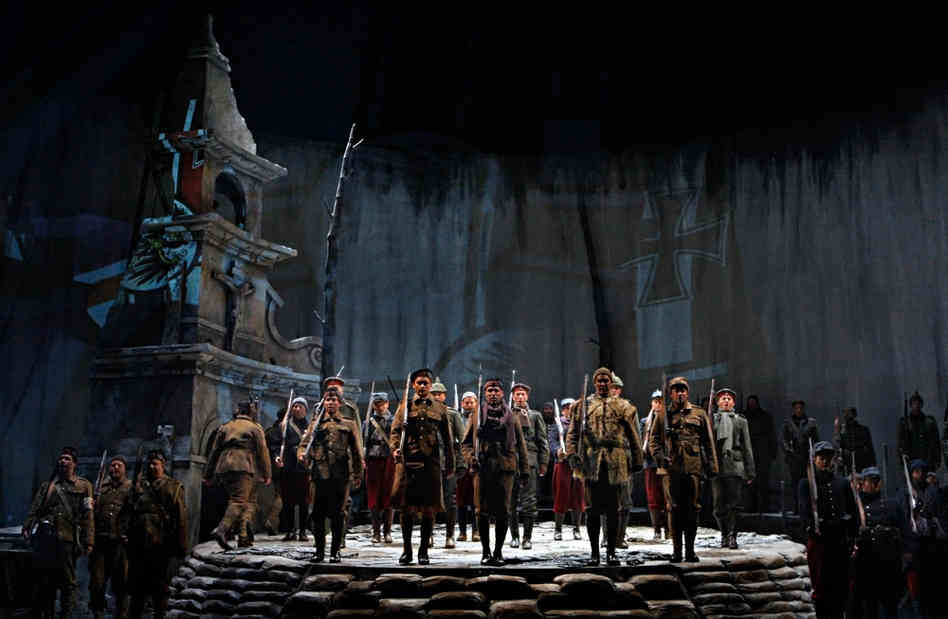
Kyle Gann (not pictured)Â recently proposed an interesting course on the American symphony, the idea being to focus on a different symphony each week, and thus examine the development of the American symphonic language.
His list was intriguing in all sorts of ways, but of course, I’ve got my own ideas on the subject.  I put my two cents in his comments section (and he wrote a very thoughtful response), but I thought it would be fun to do my own version.
KG included 19 works (which, methinks goes beyond the boundaries of a single semester at his rate.)  I designed my course as a 10-week UChicago style quarter with two works per week, and I’m also cheating in a different way by occasionally including a non-symphonic orchestral work.
Week 1: Chadwick, Symphony No. 2 (1885); Beach, “Gaelic Symphony” (1897)
Week 2: Ives, Symphony No. 1 (1901); Ives, Symphony No. 4 (1918/26)
Week 3: Hanson, Symphony No. 2 “Romantic” (1930);Â Griffes, “The White Peacock” (1919)
Week 4: Still, “Afro-American Symphony” (1930); Antheil, “A Jazz Symphony” (1925)
Week 5: Barber, Symphony No. 1 (1936); Harris, Symphony No. 3 (1937)
Week 6: Copland, Symphony No. 3 (1946); Bernstein, Symphony No. 1 “Jeremiah” (1942)
Week 7: Persichetti, Symphony for Wind Band (1956);Â Blackwood, Symphony No. 1 (1955)
Week 8: Del Tredici, “An Alice Symphony” (1969/76); Stephen Albert, Symphony No. 1 “Riverrun” (1985)
Week 9: Corigliano, Symphony No. 1 (1988);Â Ran, Symphony (1990)
Week 10: Philip Glass, Symphony No. 8 (2005);Â Rouse, Symphony No. 4 (2014)
And if I could find time for it in Week 8 or 9, I would try to add Jennifer Higdon’s Blue Cathedral.
